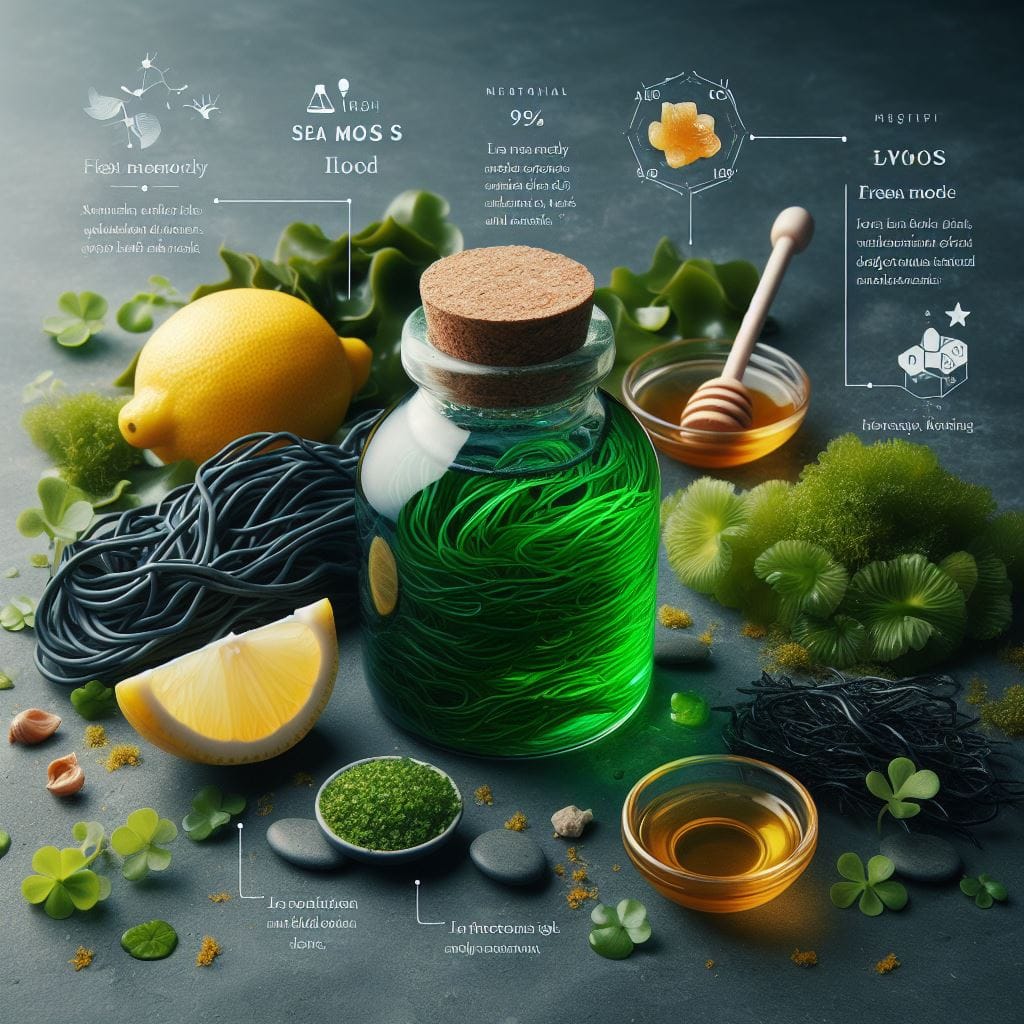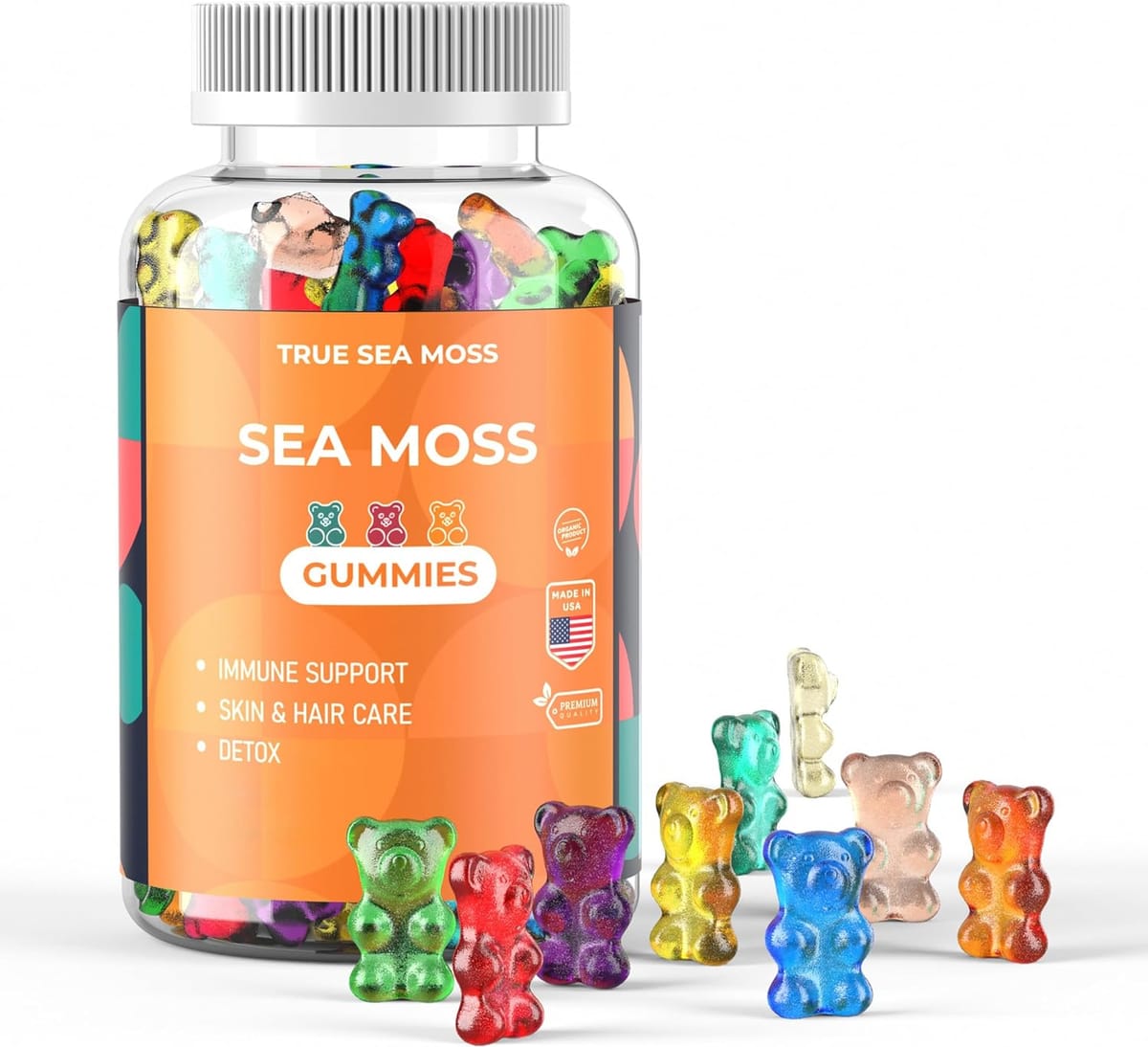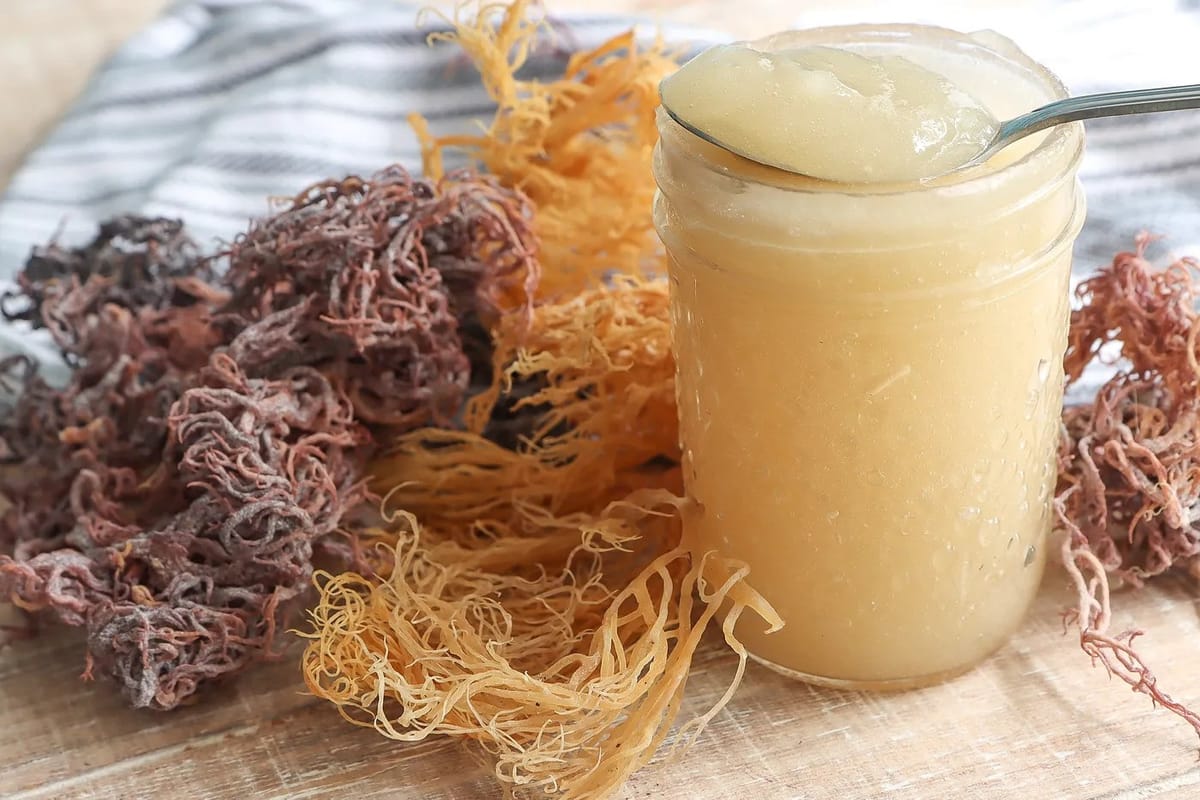Key Takeaways:
- Sea moss, a type of red algae, is touted for its potential health benefits, including supporting thyroid and immune health.
- Consuming sea moss in its various forms, such as sea moss gel or supplements, may contribute to better digestion, weight loss, and heart health.
- While sea moss offers a rich source of nutrients, it's important to consult with a healthcare provider before adding it to your diet, especially for those on blood thinning medication or with thyroid issues.
Sea moss, also known as Irish moss, is a spiny sea vegetable that has been part of the human diet for centuries, particularly in coastal regions. This marine treasure is gaining popularity in the health and wellness industry for its purported health benefits. But what is sea moss good for, exactly? This article delves into the nutritional value of sea moss, its potential health benefits, and how to incorporate it into your diet safely.
Nutritional Profile of Sea Moss
Sea moss is a rich source of various nutrients that are essential for maintaining overall health. It is known to contain vitamins and minerals such as iodine, which is crucial for healthy thyroid function. The nutritional value of sea moss also includes a good amount of dietary fiber, which supports gut health, and it is a source of amino acids, the building blocks of protein.
Sea Moss and Thyroid Health
One of the primary sea moss benefits is its ability to support thyroid health. The thyroid gland requires iodine to produce thyroid hormones, which regulate metabolism. Sea moss, being a natural source of iodine, can contribute to the production of these hormones. However, too much iodine can be detrimental, so it's important to consume sea moss in moderation and under the guidance of a healthcare provider.
Immune System Support
Sea moss is believed to support immune health. It contains compounds that may act as prebiotics, feeding the good bacteria in the digestive tract and promoting a healthy gut, which is closely linked to immune function. New research suggests that sea moss can help strengthen the body's defenses against common illnesses.
Potential for Weight Loss
Incorporating sea moss into a balanced diet might aid in weight loss. Its content of dietary fiber can increase the feeling of fullness, potentially reducing overall calorie intake. Additionally, sea moss supplements may have a positive effect on blood sugar management, which is an important factor in weight control.
Heart Health and Sea Moss
The potential health benefits of sea moss extend to heart health. The fiber content in sea moss can help lower bad cholesterol levels, which are associated with heart disease. Moreover, sea moss contains essential fatty acids that may contribute to maintaining a healthy cardiovascular system.
Sea Moss for Joint Health
Sea moss, a type of red seaweed, offers potential benefits for joint health due to its anti-inflammatory properties. It is rich in omega-3 fatty acids and compounds that can help reduce inflammation, potentially alleviating symptoms of conditions like arthritis. Additionally, sea moss may aid in blood sugar regulation by slowing down digestion and preventing rapid spikes in blood sugar levels after meals. This is particularly beneficial for individuals managing diabetes or at risk of developing the condition. The fibers in sea moss can also increase feelings of fullness, supporting weight management efforts.
In addition to its fiber content, sea moss contains a type of natural sugar called D-mannitol, which has a low glycemic index. This means that it does not cause a significant increase in blood sugar levels. While more sea moss research is needed to fully understand its impact on blood sugar regulation, preliminary findings are promising. As always, individuals should consult with a healthcare professional before making significant changes to their diet, especially if they have existing health conditions related to blood sugar.
Sea Moss and Gut Health The relationship between sea moss and gut health is another compelling topic within nutrition reviews. Sea moss is rich in prebiotic fibers, which serve as food for beneficial gut bacteria. A healthy gut microbiome is crucial for overall health, as it supports immunity, aids in digestion, and may even play a role in preventing chronic diseases. By eating sea moss, individuals may help to nourish their gut flora, promoting a balanced and healthy digestive system.
Moreover, the amino acid content in sea moss, including taurine, is thought to have a positive effect on the gut's mucosal lining, potentially aiding in the repair of damaged tissues. This is similar to the healing properties attributed to aloe vera, another plant known for its gut health benefits. As sea algae studies continue to uncover more sea moss health benefits, incorporating this superfood into one's diet could be a natural way to support and maintain a healthy gut. However, it's important to note that while sea moss can be a valuable addition to a balanced diet, it should not replace medical treatment or advice from a health care professional.
Digestive Health and Sea Moss
Sea moss can support gut health due to its high fiber content. Fiber aids in maintaining a healthy digestive tract by promoting regular bowel movements and preventing constipation. Additionally, sea moss may help to soothe the mucous membranes in the gut, contributing to a healthier digestive system.
How to Consume Sea Moss
Sea moss can be consumed in various forms, including raw sea moss, sea moss gel, and in supplement form. To prepare sea moss, it is typically soaked and then blended into a gel, which can be added to foods like smoothies or cottage cheese.
Sea moss supplements are also available for those who prefer a more convenient option. It is important to note that sea moss should always be washed and soaked before consumption to remove any impurities or debris.
Risks and Considerations
While sea moss offers numerous health benefits, it's important to be aware of the risks. Consuming too much iodine from sea moss can lead to thyroid issues.
Additionally, sea moss may contain heavy metals and other contaminants, so sourcing from reputable suppliers to prepare sea moss is crucial. Those on blood thinning medication should consult a healthcare provider before adding sea moss to their diet.
Sea Moss vs. Other Seaweeds
Sea moss specifically refers to a type of red algae, but there are other sea vegetables with similar health effects. Brown seaweed and other red seaweeds also contain beneficial nutrients and can be included in a healthy diet.
However, sea moss is often preferred for its texture and mild taste when used in recipes.
The Scientific Evidence
While there is anecdotal evidence supporting the health benefits of sea moss, more research is needed to fully understand its effects. An overview of sea moss published in journals such as Marine Drugs and the European Thyroid Journal has begun to explore the health effects of seaweed consumption, including sea moss, but more human research is necessary.
Adding Sea Moss to Your Diet
If you're interested in adding sea moss to your diet, start with small amounts to assess your body's reaction. Sea moss can be purchased in health food stores or online from consumer health products retailers.
It's important to follow preparation instructions carefully and to seek advice from a healthcare provider, especially if you have existing health conditions.

Can sea moss replace my need for iodized salt or iodine supplements?
Sea moss is a natural source of iodine, but it should not be relied upon as the sole source. It's important to maintain a balanced diet and consult with a healthcare provider to determine if additional iodine from iodized salt or supplements is necessary.
How often should I consume sea moss?
The frequency of sea moss consumption should be based on individual dietary needs and health goals. It's best to start with small amounts and consult with a healthcare provider to determine the right frequency for you.
Are there any side effects of consuming sea moss?
Some individuals may experience side effects from consuming sea moss, especially if taken in large quantities. These can include thyroid dysfunction due to too much iodine, or potential interactions with blood thinning medication. Always consult with a healthcare provider before adding sea moss to your diet.
What does sea moss smell like?
Sea moss has a mild, oceanic scent that is often described as fresh and slightly salty. Some people also detect a hint of seaweed or earthiness in the smell. Overall, the scent of sea moss is not overpowering and can be quite pleasant to those who enjoy the smell of the ocean.
Why do people drink sea moss?
Sea moss, a type of seaweed, is consumed for its many health benefits. Packed with vitamins, minerals, and antioxidants, it enhances the immune system, aids digestion, and promotes healthy skin, hair, and thyroid function. With anti-inflammatory properties, it assists with respiratory issues. In summary, sea moss improves overall health and well-being.
Why is sea moss gel so expensive?
Sea moss gel can be pricey due to the labor-intensive process of harvesting and preparing it. The rising demand for its health benefits also contributes to the higher cost. Price variations may depend on the source and quality of the sea moss.
Which country has the best sea moss?
Sea moss is found in various parts of the world, including Ireland, Scotland, and Jamaica. The quality of sea moss may vary depending on its source and how it is harvested. For example, Irish sea moss is known for its high mineral content and vibrant color due to the cold Atlantic waters it grows in.
Can you eat sea moss dry?
Yes, sea moss can be consumed dry, but it is not recommended. Consuming dry sea moss can cause digestive issues and may not provide the same health benefits as consuming it in its gel form. It is best to rehydrate dried sea moss before consuming it.
Is Green sea moss real?
Yes, green sea moss is a real type of seaweed that grows in the ocean. It is known for its vibrant green color and contains high levels of nutrients and minerals. This type of sea moss can be found in various forms such as powder, flakes, or gel.

Sea moss, a nutrient-rich sea vegetable, has been associated with a range of health benefits, from supporting thyroid and immune health to aiding in weight loss and improving heart health. While it is a promising addition to a healthy diet, it is essential to consume sea moss in moderation and be mindful of its iodine content and potential for contamination. As with any supplement or dietary change, consulting with a healthcare provider is recommended to ensure it's appropriate for your individual health needs.













